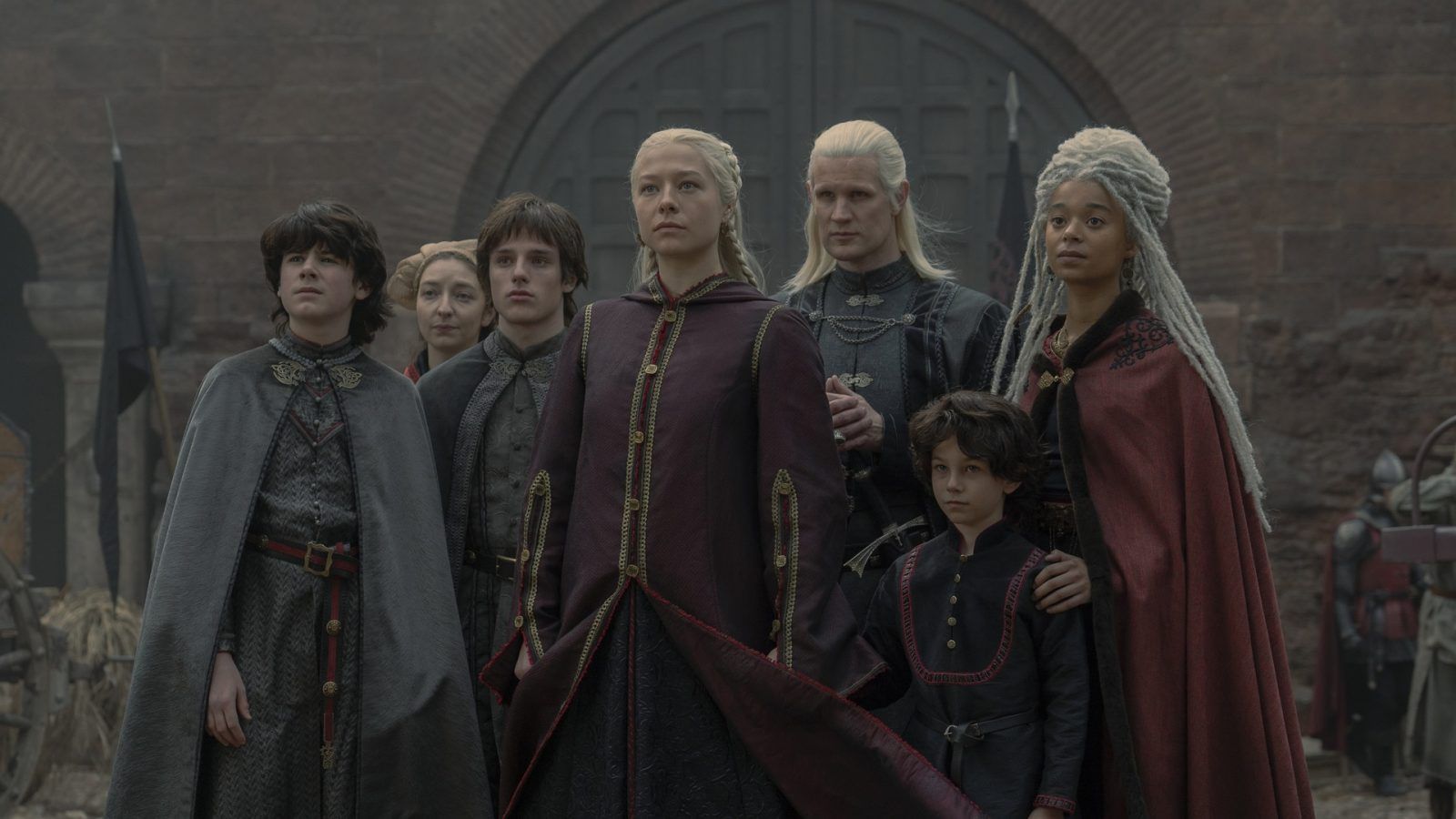House of the Dragon: A Fiery Descent Into Civil War
House of the Dragon, HBO’s prequel to Game of Thrones, transports audiences nearly 200 years before Daenerys Targaryen’s rise, into the golden age of House Targaryen—at the height of their power, when dragons ruled the skies and bloodlines determined the fate of empires. Based on George R.R. Martin’s Fire & Blood, the series chronicles the slow, tragic unraveling of the Targaryen dynasty in the lead-up to the infamous Targaryen civil war: the Dance of the Dragons.
The story begins with King Viserys I (Paddy Considine), a ruler desperate to preserve peace and legacy but unwilling to make the hard decisions necessary to secure a stable succession. When he names his daughter, Princess Rhaenyra (Milly Alcock, then Emma D’Arcy), as his heir—breaking centuries of patriarchal tradition—he ignites a chain of political schemes, betrayals, and rivalries that pit noble families and former allies against one another.
At the heart of the series is the growing divide between Rhaenyra and Queen Alicent Hightower (Emily Carey, later Olivia Cooke), once childhood friends turned bitter enemies. Their feud is personal, political, and deeply rooted in gender expectations, power struggles, and family loyalty. As children grow into heirs and alliances shift, the court becomes a battlefield—subtly at first, then with blood, fire, and dragons.
Visually, House of the Dragon is grand and immersive, filled with the dark medieval grandeur that defined Game of Thrones. But the tone is tighter and more focused, with a story that remains rooted in family dynamics, legal disputes, and legacy rather than sprawling warfare—at least in the early seasons.

The performances are universally praised, particularly Emma D’Arcy and Olivia Cooke, who carry the emotional and political weight of the show in its later episodes. Matt Smith also delivers a scene-stealing turn as the unpredictable Prince Daemon, Rhaenyra’s dangerous and charismatic uncle.
Though slower-paced than Game of Thrones, House of the Dragon offers deep character development, complex political intrigue, and the promise of chaos looming. It explores the high cost of ambition and the fragility of dynasties—even those with dragons at their command.
In summary, House of the Dragon is a worthy return to Westeros. It's a tragic, slow-burning epic that captures the essence of its predecessor while carving out its own legacy—one paved in fire, blood, and broken thrones.
-1752544326-q80.webp)
-1751855613-q80.webp)

-1751857133-q80.webp)